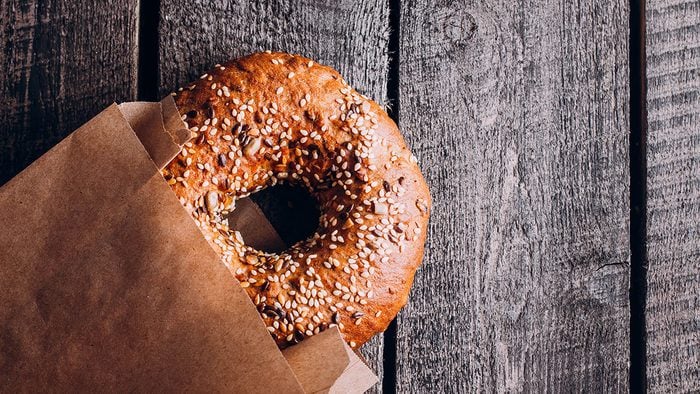
Carb-dense foods
This may change the way you look at “good carbs” and “bad carbs” forever. Carb-dense foods can alter the balance of our gut flora, triggering inflammation. Foods are considered carb-dense if they have a high ratio of carb grams relative to their weight. A small potato, which many consider a bad carb, weighs 170 grams, but it’s mostly water; only about 23 per cent of it is carbohydrate. A plain rice cake, by contrast, weighs only nine grams, but almost 80 per cent of it is carbohydrate! Bad for your gut and stomach.
Found in: Bagels, bread (including whole-grain breads), crackers, pasta, cereals, white rice, pretzels.
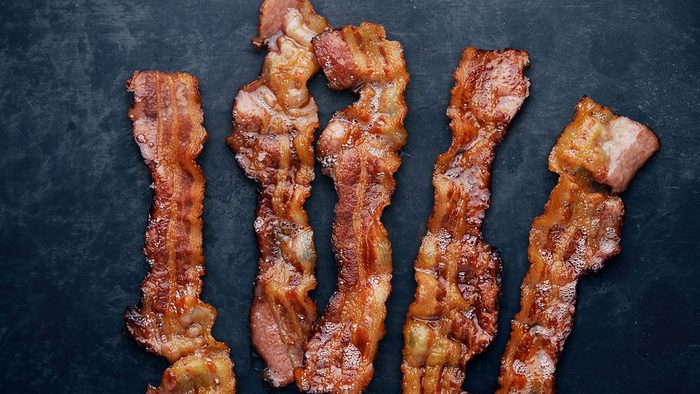
Unhealthy fats
Three types of dietary fat are linked to inflammation and thus contribute to excess belly fat: trans fats, saturated fats, and omega-6 fats.
Found in: Packaged foods (trans fats), processed and high-fat cuts of meat, full-fat dairy, some candy (saturated fat), corn oil, grape-seed oil, soybean oil, safflower oil, sunflower oil (omega-6 fats).
Here’s how to tell the difference between good fats and bad fats.
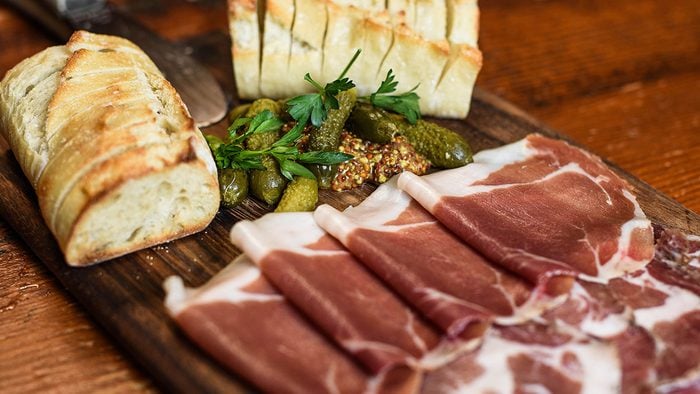
Processed meat
Processed meats are very high in calories and saturated fats. It’s not only bad for your stomach, but it can also lead to heart disease and stroke. “Processed meats are very difficult for many people to digest. They can sit in the intestines for longer because they are difficult to break down,” says Julie Rothenberg, MS, RD, LDN. They don’t contain any fibre so they aren’t good for digestion.
Found in: Cold cuts, hot dogs, ground meats.
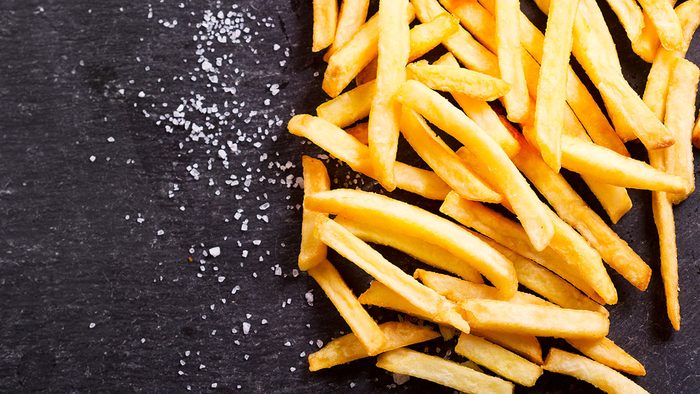
Fried foods
Fried food tends to overwhelm the stomach, resulting in acid reflux and heartburn. Rothenberg says that fried foods sit in your stomach similar to processed foods. It takes the body much longer to digest fried foods due to their high fat content.
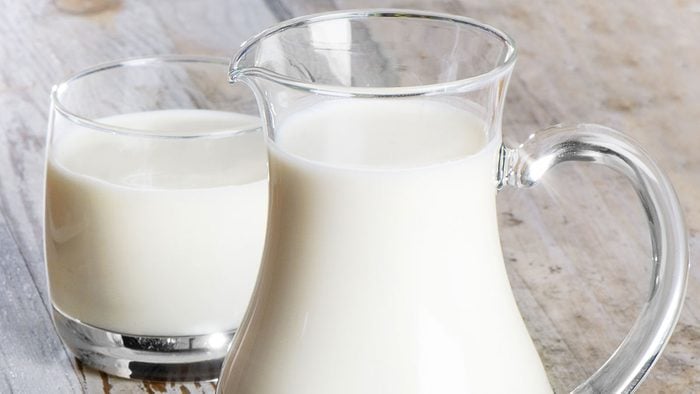
Milk and high-lactose dairy foods
A key component to keeping your tummy happy is the avoidance of FODMAPs, or rapidly fermentable carbohydrates that can aggravate your gut. Some people aren’t sensitive to any FODMAPs, some experience symptoms after eating only certain ones, and other people develop gradually worsening effects with each exposure. Lactose, found in all animal milks, is the best known FODMAP. Lactose is broken down in the small intestine by an enzyme called lactase. Our bodies produce less lactase as we get older (since its main purpose is to help babies digest breast milk), which means dairy foods that contain lactose can torment our tummies over time even if they didn’t before.
Found in: Milk, regular (non-Greek) yogurt, soft cheeses, dairy-based desserts.
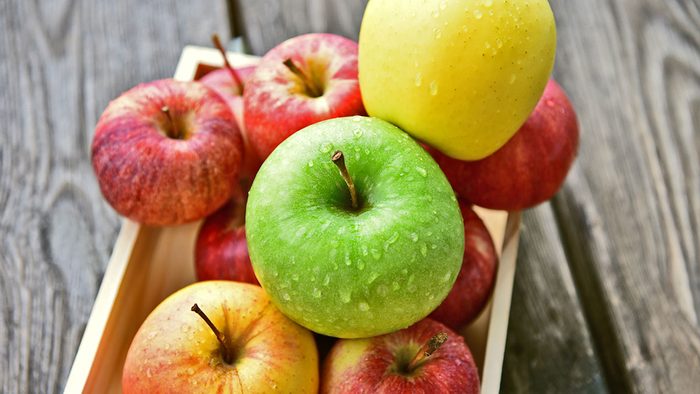
Excess fructose (in apples, honey, asparagus)
Foods with a lot of fructose (another FODMAP) compared with glucose can contribute to gas, bloating, and diarrhea. A 2008 study in the Journal of Clinical Gastroenterology found that patients with IBS who followed a non-fructose diet had fewer symptoms.
Found in: Certain fruits (apples, mangoes, watermelons), certain vegetables (asparagus, sugar snap peas), sweeteners (high-fructose corn syrup, agave nectar, honey).
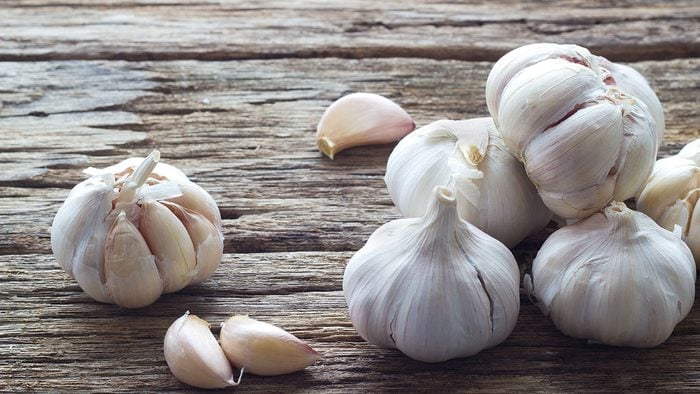
Garlic, onions, and high-fibre cousins
The body’s inability to digest a kind of fibre, called fructan, in these foods can cause flatulence. This fibre (another FODMAP) seems to cause more symptoms than some other kinds, but that may simply be because we eat so much of it.
Found in: Grains (barley, wheat), vegetables (artichokes, onions, garlic), legumes (black beans, kidney beans, soybeans), additives (inulin).
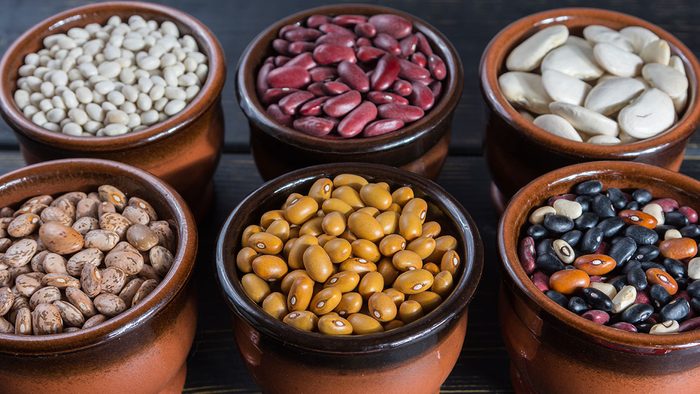
Beans and nuts
We lack the enzyme to break down a FODMAP in these foods, so our gut bacteria must digest them, which produces gas.
Found in: Most beans and some nuts (cashews, pistachios).
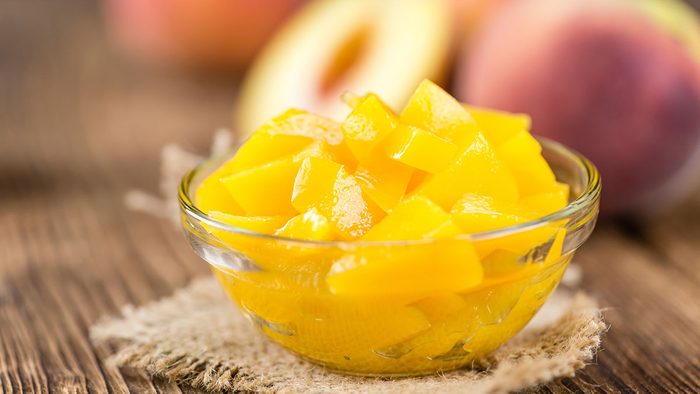
Natural and artificial sweeteners
Sugar alcohols, low-carb sweeteners naturally found in some foods and added to others, are another FODMAP. They don’t easily pass through our cell walls, so gut bacteria digest them, which can cause gas and bloating.
Found in: Some fruits (apples, blackberries, nectarines, peaches, pears, plums), vegetables (cauliflower, mushrooms, snow peas), artificial sweeteners (isomalt, mannitol, polydextrose), sugar-free foods.
How much do you know about antioxidants? Take our quiz to find out.
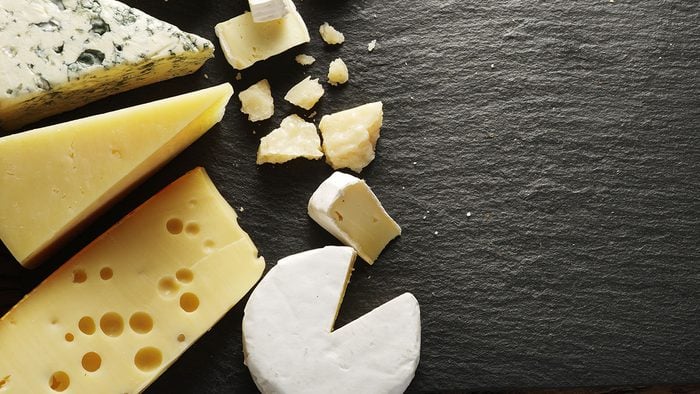
Fat-free foods
Many people think that by choosing the fat-free option makes it healthier. But in reality, fat-free foods are very bad for your stomach. “Fat-free foods contain a lot of artificial preservatives and chemicals. This confuses your brain,” says Hillary Lewis Murray, Founder & CEO of Lumi. “Your body isn’t made to digest artificial ingredients. This buildup of bad ingredients leads to bloating and fatigue. Stick with 100 per cent real ingredients.
This chef shares his secrets on building a drool-worthy cheese platter.
